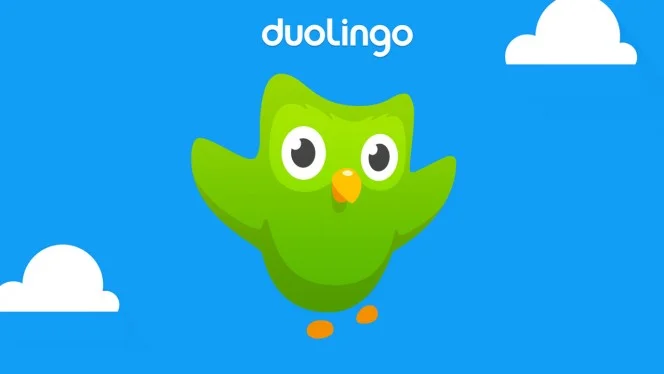I recently posted about finding purpose in your work, and how for me two passions are all-consuming: my work and video games. However, in many ways finding purpose in video games is common. Legions of people use video games as a form of escapism; as a medium to provide purpose and meaning in their lives.
Purpose and video games - gamification
This isn’t a new idea. The topic of gamification has been developing over the last few years and is being implemented into forward-thinking businesses around the globe, with gamified elements typically focusing on either customers or employees. Gamification is, quite simply, the process of building game-like elements into typical business systems and products. It can be internal and external.
The topic of gamification is one I have personally delved into on several occasions, having found ways to implement elements of it into projects I’ve worked on, and I have also studied the topic on Coursera with Kevin Werbach.
There are many reasons why gamification is successful and useful, and not least this is because of the enhanced level of purpose it grants to sometimes mundane activities. For example, one of the world’s most popular gamified apps is Duolingo, a language learning app. The process of learning a language is a long-term one – it happens over months, even years. Duolingo recognised this, and thus to keep you going through its day-to-day challenges it introduced gamified elements such as experience points and lives in order to give each individual challenge purpose beyond just being a building block to the larger language learning process. Gaining points and surviving challenges became the short-term purpose, leading to the long-term goal of learning a language.
Duolingo implemented elements from videogames to grant players a larger sense of purpose
Why are games able to provide purpose?
Aaron Hurst is one of the foremost thinkers on purpose. He coined the term ‘the purpose economy’, and broke the idea of purpose down into three core components:
- Relationships
- Doing something greater than yourself
- Personal growth and challenge
Video games, from even their earliest days, have built these three components into their very fabric and have only been integrating them to a higher degree as gaming progresses.
In addition to Aaron’s components, I’ll also discuss rewards, which have been shown to provide powerful motivational cues on a purpose-driven journey, if implemented correctly, according to an article by Ledford, Gerhart and Fang.
Purpose through relationships
These typically take two forms in video games: characters and players.
Since the early days of gaming, players have been introduced to non-player characters (NPCs) and playable characters whom they’ve loved. The best characters have become iconic. Mario, Sonic, the cast of Street Fighter – players have been allowed to get to know those characters in great detail.
NPCs have also developed over time, becoming integral to many RPGs and forming close bonds with the player. 2013’s Bioshock Infinite is a game which saw unrivalled closeness between the player and AI-controlled partner Elizabeth, who fought alongside you for nearly the entirety of the gameplay.
Telltale's The Walking Dead allowed character relationships to take centre stage, creating incredibly moving, emotional, and meaningful gameplay.
What we can learn: games have created lovable characters, who have let you into their world and guided you around it. Brands have just the same power to do this. Let people truly know you and your staff; make them feel part of your movement. Develop your brand and use every channel you can to get closer to customers.
Over the last decade, online gaming has really come to the fore. Here, gaming relationships mirror real relationships, as players can interact with a community of like-minded players. Whilst there are competitive elements, gamers are rarely flying solo – they are cooperating with at least a small team. Often these relationships develop into true communities (clans or guilds).
What we can learn: foster your community. Social media has risen in-line with the developments in online gaming. Foster relationships via social media, engage your community in discussion, and aim to develop a fanbase. Your customers and followers should feel part of a community in order to maximise the relationship element.
When it comes to personnel management, most companies could stand to learn a thing or two from clans and guilds. Some of the biggest gaming teams out there have exceptional managers heading them up, and are doing everything a good company should be. Communication skills, training, effective feedback - do not underestimate the dedication and leadership skills present in some of these teams.
Purpose through a mission that is greater than the self
I struggle to think of a game where there isn’t something bigger going on; where you, as the player, aren’t an integral driving force to the world in front of you and the overarching narrative. Gaming gives an unparalleled sense of meaning in this regard. You are not only part of the world, but you are typically the protagonist and the game revolves around you. Games have, over time, developed complexities around this, implementing morality systems and choice-making, meaning you truly control the world in front of you.
The iconic Legend of Zelda series provides players with situations in which the fate of entire worlds depends on their actions.
What we can learn: how do your employees feel? What are their day-to-day challenges? Do they feel like they have an impact on the organisation as a whole? Are they granted autonomy? Or are they tightly controlled cogs in the machine? Employees across the organisation need to be given a feeling of working towards something bigger and meaningful. Present to them a challenge beyond profits and numbers. A challenge that they can actually work on and tackle. They will become truly absorbed in doing just that.
Purpose through personal growth
Video games present this in two ways – progression in your skill as a player, and progression in your character.
The former is more relevant in a first person shooter, or a beat ‘em up, in which skill is the primary factor to enhancing your position. Challenging gameplay leads to players working harder to develop their skills and become better in order to progress. Games are also generally careful about implementing a ‘difficulty curve’, by which the difficulty of the game progresses slowly and doesn’t smack the player in the face with near-impossible scenarios from the outset. The satisfaction from developing skills and progressing is paramount.
What we can learn: challenge your employees, and never stop challenging them. Allow them to grow. They are part of the genetic make-up of your business, and you should always be developing that position in order to tackle the bigger and tougher challenges of tomorrow. Never overburden them though – aid them through those challenges and help them to develop. Developing their skillsets should be a fun and rewarding process for them. Remember the gentle difficulty curve.
The latter element of personal growth is about levelling up, more akin to an RPG game, although the levelling aspect is becoming ubiquitous in gaming. In this regard, the gamer earns in-game experience points, which leads to their character progressing and gaining better abilities within the game. The pursuit for the next upgrade is often never-ending and can be highly addictive.
Fitocracy's experience points system, allowing user's to 'level up' their account, may seem simplistic at first, but there's a reason it's one of the most used fitness apps out there, with huge retention rates for its users: it's addictive.
What we can learn: This process is one of the most addictive elements in the gamification process, and has been shown to turn even mundane tasks into stimulating and purpose driven activities. It really is the nuts and bolts of an effective gamification strategy in your product. How can you build the constant quest for higher points into the product or distribution? Duolingo provides a perfect example once again with its experience points system. Fitness apps such as Fitocracy and Nike+ do the same. Others have built into distribution and selling – the typical ‘reward points’ system is an example, although somewhat tokenistic.
Internally, how can you take this simple yet addictive construct and build it into your business in some way? It doesn’t have to be customer focused. Microsoft used an experience points system among their employees when it came to bug squashing for Windows 7 and versions of Microsoft Office, and found it drastically increased productivity.
Rewards and the impact on purpose
And all along the way games provide rewards. New items and characters are unlocked, new worlds can be explored, and the story progresses. It provides momentum to the game and ensures that purpose is hammered home. Without the rewards, players may begin to feel a sense of burnout and confusion. Are they really on the right track? There is an element of selfishness in us all, and stimulation must be maintained by drip-feeding new goodies along the way, despite the relationships, despite the higher cause, and despite the personal growth.
Microsoft tapped into the idea of stepping-stone rewards with their Achievement system introduced on Xbox Live. These are unlocked as the game progresses and for performing specific tasks. When used well, gamers would go out of their way to perform in-game actions in order to gain these rewards.
What we can learn: Rewards should be thought of less as something that provides purpose and more as stepping stone achievements along the journey. Little incentives to keep going, and show people that they’re on the right track. Offer customers rewards for their dedication and engagement. One of the clients I worked with implemented a ‘fan of the week’ competition for their most creative expressions of love to the brand, rewarding the winner with goodies. Equally, keeping employees rewarded monetarily or otherwise is important. It shows thanks, and it shows that you appreciate the work being done. Just make sure those rewards come from a genuine place, and aren't superficial or meaningless.
A hobby or a purpose?
Gaming, unlike any other medium, can captivate attention-spans and hold onto them tightly. Even the dullest of iOS games become missions in the eyes of apathetic people by implementing constructs that provide purpose. When people feel that they have a meaningless and unfulfilling life it's no surprise that they find that sense of purpose in a game. Suddenly they are important, they're finding bonds with other players, and they're developing their characters and their skills.
And people are almost addicted to the process. So imagine what we could do if we learnt more about how games provide purpose, and implemented that into our businesses and organisations? Productivity would skyrocket, motivation would be endless, and employees and customers would fall in love with the brand.
Older generations in particular dismiss games as a fad, or as a waste of time. But I ask you remain open-minded. Understand what it is about games that make people tick, and can you implement those things into your organisation in some way?






